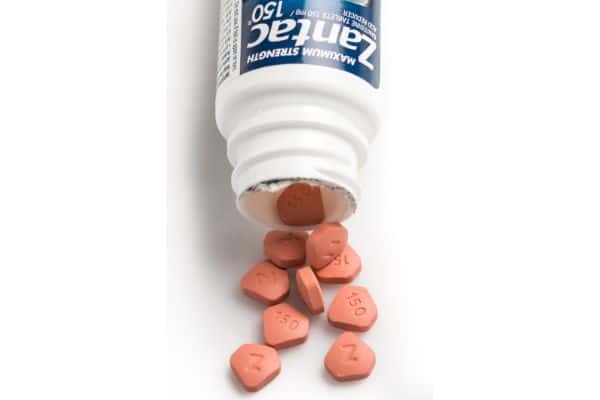Sometimes your doctor prescribes a medication that is considered safe. However, later studies show that the drug is actually harmful. For decades, people have used heartburn medications to treat acid reflux, GERD, and other gastrointestinal issues. However, researchers recently have made a heartburn medication-cancer connection that cannot be ignored. Read on to learn more about this disturbing link and what to do if you suspect you have been harmed.
How Does a Heartburn Medication Work
The drug we will look at is called ranitidine, which is often sold under the brand name Zantac.
Ranitidine works by reducing the gastric acid in your stomach. Although gastric acid is useful, serious conditions can develop when you have too much of it. For example, people with excess acid might suffer from ulcers or gastroesophageal reflux disease (GERD). At the very least, you may feel a burning in your chest or esophagus, particularly after eating certain types of food.
Heartburn medications block cells called histamine H2-receptors that are located on the lining of your stomach. Histamine is a substance that causes the release of acid. So, drugs like ranitidine stop the cells from secreting stomach acid.
Do They Cause Cancer?
In 2019, researchers discovered ranitidine that contained a potentially cancer-causing drug called NDMA. In fact, it is possible that researchers connected ranitidine and NDMA in 2011 or as far back as 1981.
Some studies showed that heat applied to ranitidine causes NDMA to form. Other tests showed NDMA forming in the stomachs of people who eat diets with high levels of the preservative sodium nitrite. Therefore, people taking ranitidine/Zantac could be at higher risk of developing certain types of cancer.
What This Means for Patients
Patients across the country have filed lawsuits against drug makers because of the heartburn medication-cancer connection. Primarily, plaintiffs claim that the drug company should have warned users of ranitidine about the NDMA-cancer link. In some cases, plaintiffs win but only have to show that they used the drug and not that it caused cancer.
When a medication is considered defective, drug makers can be held responsible. They may be forced to pay compensation to users of their defective products.
Did Heartburn Medication Cause Your Cancer?
You may be part of a mass tort case if you have taken any of the heartburn drugs mentioned above, then developed cancer. You owe it to yourself and your family members to explore any avenues for compensation, including filing a lawsuit.
At the Dailey Law Firm, P.C., our team of skilled lawyers and professionals provide sound and current legal representation that you need. Call us at 844-342-5353 to set up a free consultation or use the Contact Form on our website. There’s no fee for personal injury cases unless we win.
We represent clients throughout the entire United States. You can reach us online or visit one of our offices in Detroit, Michigan; Chicago, Illinois; or Valparaiso, Indiana.

